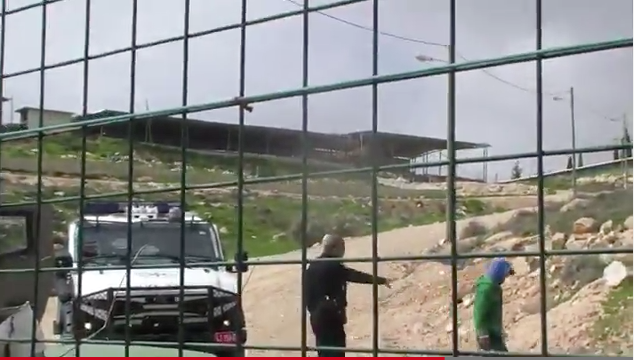Tag: Arrests
-
Nabi Saleh Land Day Protest met with extreme violence and M16 live ammunition
30th March 2015 | International Solidarity Movement, Ramallah team | Nabi Saleh, Occupied Palestine On the 28th of March 2015, close to 200 protesters from all over the West Bank gathered in Nabi Saleh to protest the occupation in commemoration of Land Day. The protest was met with extreme violence as the Army and Border Police fired…
-
VIDEO: Children assaulted and 3 women arrested at Nabi Saleh demonstration
21st March 2015 | International Solidarity Movement, Ramallah Team | Nabi Saleh, Occupied Palestine Israeli forces arrested three women in Nabi Saleh and injured several protesters, one with live ammunition, during the village’s weekly Friday protest on March 13. The demonstration was met with the usual military violence as Israeli forces threw stun grenades and fired live ammunition at unarmed and peaceful protesters. After…
-
Israeli forces arrest two shepherds in the South Hebron Hills
5th March 2015 | Operation Dove | South Hebron Hills, Occupied Palestine On the morning of February 28, Israeli police arrested two Palestinian shepherds as they grazed their flock in the valley of Umm Zeitouna near the Israeli settlement of Ma’on. In late morning the security chief of Ma’on settlement and Israeli soldiers arrived in Umm Zeitouna valley…



